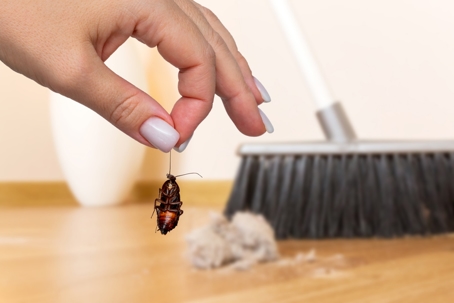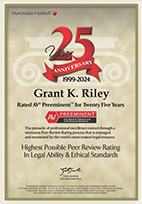Summer brings warm weather, longer days, and unfortunately, a surge in pest problems. From persistent cockroaches to disease-carrying rodents, pests thrive during the hotter months. If you’re dealing with an infestation in your rental and your landlord is ignoring your complaints, you’re not alone. Pest problems are not just a nuisance; they can pose serious health risks and impact your quality of life.
Why Summer Makes Pest Problems Worse
Pests are more than just unpleasant to see; they play an active role in spreading diseases and contaminating your home. Unfortunately, summer creates the perfect storm for infestations to bloom. Here’s why:
1. Heat and Humidity Attract Pests
Summer’s heat accelerates the breeding cycles of many pests, including roaches, ants, and flies. Warm evenings might also invite invasive species like mice and rats to shelter indoors seeking cool, shaded areas. If your landlord hasn’t sealed cracks or maintained proper insulation, it’s like rolling out a welcome mat for pests.
2. Increased Food Availability
Whether it’s cookouts or trash left overnight, the casual pace of summer living often creates conditions pests love. Warm temperatures also cause food and waste indoors to decompose faster, making your kitchen or garbage bins irresistible.
3. Stagnant Water is a Breeding Ground
Mosquitoes, in particular, can become a nightmare in summer if rain puddles, leaky pipes, or broken gutters aren’t fixed. Standing water is a breeding ground for many pests that might’ve gone unnoticed in cooler months.
Unfortunately, while the summer heat may come and go, the pests that thrive during this time may settle in, leaving you with an ongoing infestation that your landlord has a legal responsibility to address but might be neglecting.
Health Risks of Living with Pests
An untreated pest problem isn’t just unpleasant; it’s downright dangerous. Here are the stakes for your health and well-being:
1. Allergies and Asthma
The presence of cockroaches, bed bugs, and rodents can trigger allergic reactions and worsen asthma, especially for children. Their droppings release allergenic particles that become airborne and easily inhaled.
2. Food Contamination
Rodents and cockroaches aren’t just dirty; they're carriers of harmful bacteria like salmonella and E. coli. They can contaminate exposed food or kitchen surfaces, putting your family at risk for foodborne illnesses.
3. Bites and Rashes
Fleas, bed bugs, and mosquitoes can leave behind itchy bites and, in some cases, transmit diseases such as Lyme disease, West Nile virus, or even hantavirus.
4. Mental Strain
Living with pests can take a toll on your mental health. Persistent infestations cause stress, disrupt sleep, and make you uncomfortable in your home. No one should feel unsafe in their living space.
What Are Your Rights as a Tenant?
Pest control isn’t just a kindness; it’s part of your landlord’s legal obligation to maintain a habitable property. If your landlord neglects this duty, you have several rights as a tenant:
1. The Implied Warranty of Habitability
Legally, your landlord is required to provide a safe and livable rental property. Pest infestations often violate the "implied warranty of habitability," a standard upheld in most states.
2. Specific Local Codes and Regulations
Many cities and states outline housing codes that mandate landlords keep properties free of pests. For example, landlords may be responsible for extermination unless the tenant directly caused the infestation.
3. Prevention Through Maintenance
Landlords are generally required to take steps like sealing entry points, repairing leaks, and hiring licensed pest control contractors to deal with infestations thoroughly. Ignoring such responsibilities could render them liable for damages.
What to Do If Your Landlord Ignores the Problem
Facing unresponsive landlords can feel like a dead end, but there are actionable steps you can take to address the issue and advocate for your rights.
1. Document Everything
Keeping track of your interactions with your landlord and signs of the infestation can be crucial if you need legal or third-party intervention. Here's how:
- Take photos and videos. Capture evidence of pests, damaged areas, or signs like droppings, nests, or chewed wires.
- Log communications. Save texts, emails, or written requests you’ve sent about the pest problem along with their responses (or lack thereof).
- Track the timeline. Keep a detailed record of when the infestation started, when you reported it, and the landlord’s actions or delays since.
2. Notify Your Landlord Formally
If your landlord brushes off phone calls or verbal complaints, formalize your request:
- Write a detailed letter or email. Outline the problem clearly and request immediate action. Mention the potential violation of the warranty of habitability.
- Send it through certified mail. This ensures your landlord can’t deny receiving the notice.
3. Contact Local Authorities
If your landlord remains unresponsive, escalate the issue by filing a report:
- Reach out to code enforcement. Your city or county housing department may send an inspector to evaluate the property and compel your landlord to act.
- Alert health departments. Local officials may intervene, especially in cases of insects or rodents that pose public health risks.
4. Withhold Rent or Repair-and-Deduct (if allowed)
Some states allow tenants to withhold rent or deduct the cost of pest control services from their monthly rent if landlords neglect their duties for too long. However, this step requires caution:
- Know your state’s laws. Legal protections for withholding rent vary by location. Ensure you’ve met all notification and documentation requirements first.
- Seek professional advice. An experienced tenant attorney can guide you on the right way to take these actions without jeopardizing your legal footing.
5. Seek Legal Help
If your landlord continues ignoring pest problems, consulting an attorney may be your best option. Tenant lawyers specialize in holding landlords accountable for unsafe or uninhabitable living conditions. Potential legal actions include:
- Demanding pest control services. A court can compel your landlord to act quickly.
- Seeking compensation. You may be eligible for damages related to medical bills, furniture replacement, or emotional distress caused by the infestation.
- Breaking your lease. If the home becomes unlivable, breaking a lease without penalty may be an option.
Prevention Tips While You Wait
While you work to resolve the problem, these steps can help minimize the immediate impact of pests in your home:
- Seal food and trash. Keep all food tightly sealed and clean up spills quickly. Take out the trash frequently in tightly closed bags.
- Block entry points. Use weatherstripping, caulking, or mesh screens to block cracks, holes, or gaps pests may use to enter.
- Clean frequently. Vacuum often and avoid leaving dirty dishes in the sink overnight.
- Set traps safely. Use bait stations or humane traps to reduce pest populations while waiting for professional help.
Los Angeles Tenant Rights Lawyer
At Riley Ersoff, located in the heart of Beverly Hills, CA, we understand that dealing with pest issues in rental properties can be frustrating and exhausting. Our team is committed to offering comprehensive legal support to tenants facing uncooperative landlords. By leveraging our extensive knowledge of California tenant laws and our experience in resolving disputes, we can help you regain a safe and habitable home. If you’re dealing with unaddressed pest issues and need expert guidance on your rights and available legal actions, don't hesitate to reach out to us. Contact us today at (888) 658-9695 to ensure your living conditions are addressed with the urgency and seriousness they deserve.


















